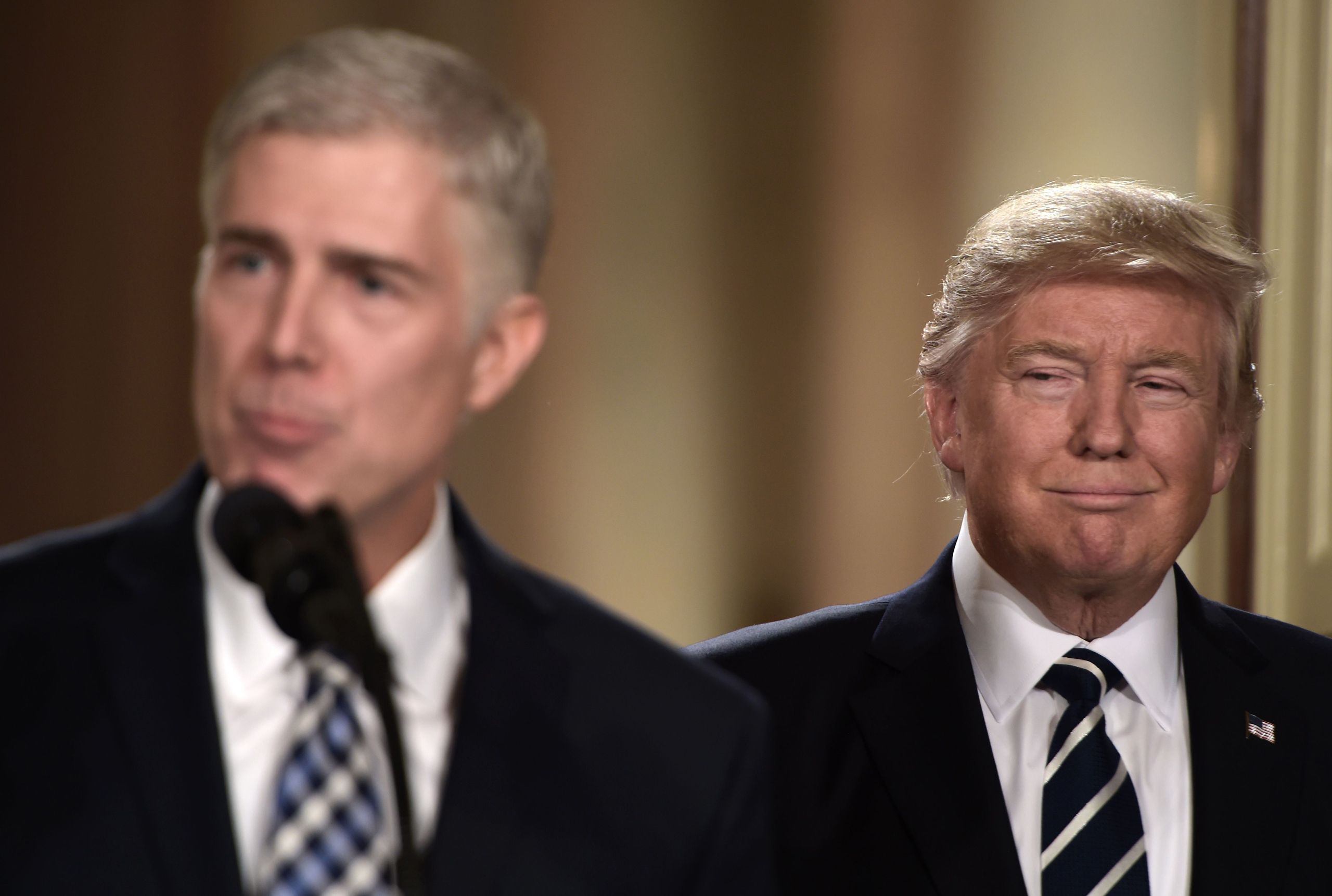 Many critics scoff when Trump supporters point to the appointment of Neil Gorsuch as a meaningful achievement. But one thing is becoming clear: Neil Gorsuch will do more for our Country than the entire GOP congress.
Many critics scoff when Trump supporters point to the appointment of Neil Gorsuch as a meaningful achievement. But one thing is becoming clear: Neil Gorsuch will do more for our Country than the entire GOP congress.
When Justice Scalia died leaving only eight judges on the Supreme Court, the court tried to avoid the more important cases, and we’ve now been through two cycles with relatively few landmark decisions. But now there’s nine, and the Supreme Court term beginning this week is set to be packed with important cases.
The court will hear “Masterpiece Cakeshop v. Colorado Civil Rights Commission.” A case of Christian baker being sued by Colorado for refusing to make cakes for a same-sex marriage. This sort of thing has become all too familiar, but now Gorsuch could have the chance to protect religious liberty by setting a precedent for the whole county and putting the debate to bed.
There’s Carpenter v. United States. A case of man named Carpenter who was part of a team of robbers. But one of Carpenter’s accomplices confessed to the crime and gave the government his cellphone number and the numbers of the others. The cops ordered the cell providers to hand over the phone records and found that the phones of the alleged robbers were within distances ranging from a half-mile up to two miles of the robberies at the time they occurred.
The problem is, does the government have the right to know everyone’s location all the time? Shouldn’t they need a warrant for private info like that? Again, the court has the chance to set a major precedent and set the record straight on privacy in the cellphone era.
There will also be voting rights and so-called “gerrymandering” cases that may result in a revolution in electoral politics. But most “Yuge” of all might be Janus v. American Federation of State, County, and Municipal Employees. It is a case that may strike a massive blow to government unions.
The question is whether unions can force non-union members to pay them. More specially, is a public union considered a “political” group and therefore must comply with the first amendment? In the private sector, this question is decided by “right to work” laws. Most Republican states have “right to work” laws making forcing non-union members to pay the unions illegal. (Passage and success of “right to work” made Gov. Scott Walker a celebrity) But chances for national “right to work” being passed by this congress are slim at best. Last year, in Friedrichs v. California Teachers Association — a case virtually identical to Janus — the eight-man Court came to a 4–4 stalemate. Now, Gorsuch has the chance to bring “right to work” to the Public-Sector!
Not only would this be a win for the liberty, public-sector unions will take a big hit. These groups extort billions of dollars from taxpayers. Unions donate huge sums to supportive politicians and then “negotiate” with employers run by those very politicians as taxpayers foot the bill. The entire system is a farce and has led to inflated compensation packages, insane pensions, and budget crises. http://www.magapill.com/neil-gorsuch-is-on-track-to-do-more-for-our-country-in-than-the-entire-gop-congress/
Hi! I am a robot. I just upvoted you! I found similar content that readers might be interested in:
http://www.magapill.com/neil-gorsuch-is-on-track-to-do-more-for-our-country-in-than-the-entire-gop-congress/
Downvoting a post can decrease pending rewards and make it less visible. Common reasons:
Submit